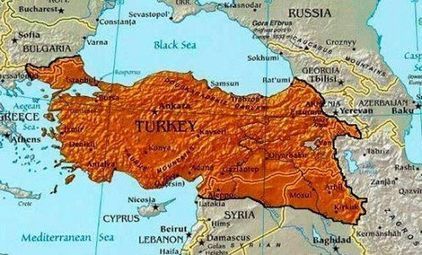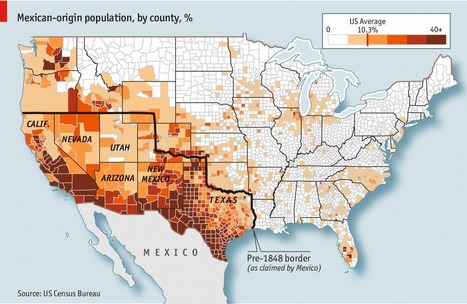Research and publish the best content.
Get Started for FREE
Sign up with Facebook Sign up with X
I don't have a Facebook or a X account
Already have an account: Login
 Your new post is loading... Your new post is loading...
 Your new post is loading... Your new post is loading...

Alex Smiga's curator insight,
August 10, 2017 7:02 AM
Seth Dixon's insight: A century and a half ago, the immigration debate and geopolitical shifts in power on the United States-Mexico border reflected a profoundly different dynamic than it does today. This history has enduring cultural impacts on southwestern states that had the international border jump them.
|

Alex Smiga's curator insight,
August 10, 2017 6:51 AM
I say it all the time, culture does not respect boarders.
Nicole Canova's curator insight,
February 9, 2018 8:15 PM
Up until 170 years ago, a large portion of what is now the United States was actually controlled by Mexico. Remarkably, this is still reflected in the ethnic makeup of the population of that area, which covers all or part of 8 states (all of California, Nevada, Utah, Arizona, New Mexico, and Texas, and part of Colorado and Wyoming). Political borders may determine citizenship, but they are by no means a hard division of ethnicity or culture.
|














The linguistic differences between languages can be slight, but if politics and identity are involved (as they invariably are), these small linguistic differences can seem massive. "Languages" can occasionally be dialects with their own armies.
Scoop.it tags: language, culture, borders, political, Croatia, Serbia, Bosnia, Slovenia.
WordPress TAGS: language, culture, borders, Croatia, Serbia, Bosnia, Slovenia.